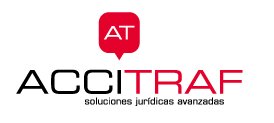Best Legal Document Lawyers in Salamanca
Share your needs with us, get contacted by law firms.
Free. Takes 2 min.
List of the best lawyers in Salamanca, Spain
About Legal Document Law in Salamanca, Spain
Legal documents form a critical part of daily life and business in Salamanca, Spain. These documents include contracts, wills, powers of attorney, affidavits, deeds, and more. Legal document law ensures that such papers are drafted, executed, and authenticated according to established legal procedures and standards. The purpose is to protect all parties involved and avoid future disputes or challenges. In Salamanca, as is the case throughout Spain, certain documents must comply with specific formatting, notarization, and registration requirements under Spanish law.
Why You May Need a Lawyer
You might require legal guidance relating to legal documents in several scenarios. Some common situations include:
- Drafting a contract for property sale, employment, or business transactions
- Creating or modifying a will or inheritance document
- Preparing powers of attorney, consent forms, or sworn declarations
- Authenticating or notarizing documents for use in official processes
- Translating and legalizing foreign documents to be valid in Spain
- Registering property transactions or mortgage deeds
- Resolving disputes or misunderstandings resulting from ambiguous documents
- Ensuring compliance with specific requirements for public or private legal acts
- Challenging the validity of a document
A lawyer can help you ensure that your documents are legally sound and enforceable, thus safeguarding your rights and interests.
Local Laws Overview
Legal document law in Salamanca follows the framework established by Spanish national legislation, such as the Spanish Civil Code and specific regulations for notarization and registration. Key local aspects include:
- Certain legal documents, especially those related to property, inheritance, or marriage, must be drafted and authenticated before a Notary Public (Notario).
- Documents to be used in certain public or administrative processes may require official translation and apostille certification if originating from abroad.
- Registration with the official public registry, such as the Land Registry (Registro de la Propiedad) or the Civil Registry (Registro Civil), may be mandatory for some documents.
- The validity of a legal document can depend on strict formal requirements, including signatures, witness attestations, and specified language.
- Unlawfully drafted or incomplete documents may be declared null and void, leaving one or more parties unprotected.
Legal professionals, including notaries and lawyers, play a crucial role in ensuring documents comply with both national and local legal standards in Salamanca.
Frequently Asked Questions
What kinds of legal documents are commonly used in Salamanca, Spain?
The most common legal documents include contracts, wills, powers of attorney, marriage agreements, leases, property deeds, and business incorporation contracts.
Do all legal documents have to be notarized?
Not all legal documents require notarization. However, documents relating to property transfers, inheritance, and certain legal powers often must be notarized for legal effect.
Can I draft a legal document myself?
While some simple documents can be drafted personally, it is strongly recommended to seek legal advice for complex agreements or documents involving significant rights or assets to ensure legality and avoid disputes.
How do I authenticate a foreign legal document for use in Salamanca?
Foreign documents typically must be translated into Spanish by a certified translator and may require an apostille or legalization, depending on the country of origin.
What is the role of a Notary Public in Salamanca?
A Notary Public verifies identities, ensures legal validity, and witnesses the signing of documents. They also keep official records and register documents as required by law.
How much does it cost to have a legal document prepared or notarized?
Fees vary depending on document complexity and the type of service needed. Notarial fees are regulated by law, while lawyers may charge by the hour or per service.
How long does it take to process legal documents?
Processing times depend on the type of document and any required registrations. Simple documents can be prepared in a day, while more complex matters may take several weeks.
Where should I register property deeds or business documents?
Property deeds must be registered at the Land Registry, while business documents may be filed with the Commercial Registry (Registro Mercantil).
Can I challenge a legal document I have already signed?
It may be possible to challenge a signed legal document if there was fraud, misrepresentation, coercion, or if the document does not comply with legal requirements.
Are there templates for standard legal documents in Spain?
There are standard templates for some legal documents. However, customization is usually necessary to address specific legal needs and ensure compliance with local law.
Additional Resources
If you need further information or support regarding legal documents in Salamanca, the following resources can be helpful:
- Notarial Association of Salamanca (Colegio Notarial de Salamanca) - Provides information about notary services and requirements.
- Bar Association of Salamanca (Ilustre Colegio de Abogados de Salamanca) - Offers directories of licensed lawyers and legal advice services.
- Province Civil Registry (Registro Civil de Salamanca) - Handles matters involving civil status documents and registrations.
- Local Land Registry (Registro de la Propiedad de Salamanca) - Manages property registrations and related documentation.
- City Hall Legal Services (Servicios Jurídicos del Ayuntamiento de Salamanca) - Offers some guidance on local administrative procedures that require legal documents.
Next Steps
If you believe you need legal assistance with any kind of legal document in Salamanca, here is how you can proceed:
- Identify the type of legal document and the objective you wish to achieve.
- Gather all relevant information and supporting materials you may need.
- Contact a qualified lawyer or consult a local notary for personalized legal advice.
- Clarify the legal requirements specific to your situation, including the need for notarization or registration.
- Have the document prepared, reviewed, and signed in the presence of a legal professional when necessary.
- Register or submit your document to the appropriate public registry, if required.
- Keep certified copies of all finalized documents for your records.
Taking these steps with help from licensed legal professionals ensures that your legal documents are valid and fully protect your interests under Spanish law.
Lawzana helps you find the best lawyers and law firms in Salamanca through a curated and pre-screened list of qualified legal professionals. Our platform offers rankings and detailed profiles of attorneys and law firms, allowing you to compare based on practice areas, including Legal Document, experience, and client feedback.
Each profile includes a description of the firm's areas of practice, client reviews, team members and partners, year of establishment, spoken languages, office locations, contact information, social media presence, and any published articles or resources. Most firms on our platform speak English and are experienced in both local and international legal matters.
Get a quote from top-rated law firms in Salamanca, Spain — quickly, securely, and without unnecessary hassle.
Disclaimer:
The information provided on this page is for general informational purposes only and does not constitute legal advice. While we strive to ensure the accuracy and relevance of the content, legal information may change over time, and interpretations of the law can vary. You should always consult with a qualified legal professional for advice specific to your situation.
We disclaim all liability for actions taken or not taken based on the content of this page. If you believe any information is incorrect or outdated, please contact us, and we will review and update it where appropriate.










